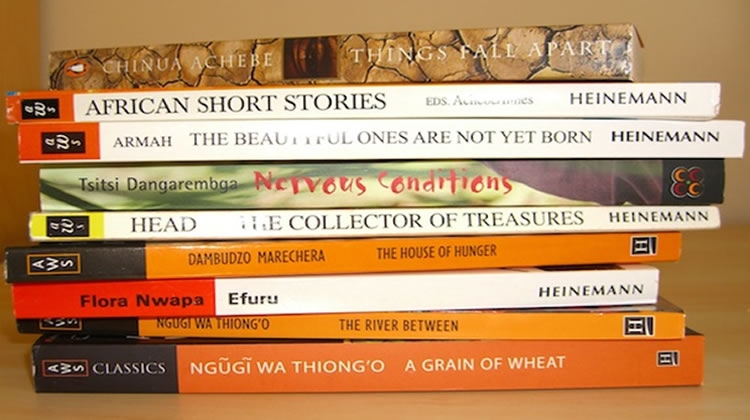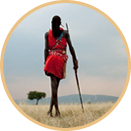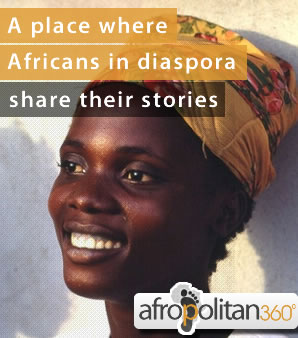
Done any reading lately? Need a few great book suggestions and open to Africa's diverse authors and stories?
You've come to the right place.
Ali Mazrui's AFRICA'S 100 BEST BOOKS OF THE 20TH CENTURY project was first suggested at the 1998 Zimbabwe International Book Fair in Harare. Mazrui's best books list was an effort to throw light on the achievements of African writers who have creatively pulled together stellar works of literature that capture this continent's greatest stories.
In 2002, a jury, chaired by Njabule Ndebele, considered over 500 nominations from the original list of 1,521 nominations proposed by individuals and institutions all over the world. The nominations were subjected to rigorous criteria which included, inter alia, an assessment of quality, the ability to provide new information or insight, a continuing contribution to debate, and the extent to which a book broke down boundaries.
The final list had to reflect a balance of regional representation, gender, historical spread and genres of writing and was announced in Accra, Ghana, on February 18, 2002 and the Awards Presentation Gala took place in Cape Town on 28 July.
Although 10 years old now, and while many new authors like Chimamanda Ngozi-Adichie have joined the list of Africa's literary giants, the list is still highly relevant.
The books - in African and European languages or in Arabic - are divided into three categories: children's writing, non-fiction/academic writing and creative writing.
However, to whet your appetite, the first 12 books on this illustrious list are:
Chinua Achebe, Things Fall Apart, 1958
Nigeria's most famous writer portrays the impact of British colonization on the life of a settled African community. The author not only informs the outside world about Ibo cultural traditions, but also reminds his own people of the value of their past.
Meshack Asare, Sosu's Call, 1999
This book received UNESCO's 1st Prize for Children's Literature.
Mariama Bâ, Une si longue lettre, 1979
The Senegalese writer Mariama Bâ (1929-1981) received the 1980 Noma Award for Publishing in Africa for this novel that captures the everyday frustrations that many African women face, especially after the death of their spouses.
Mia Couto, Terra Sonâmbula 1992
Born in Mozambique in 1955, Couto has managed to blend, in a unique way, African oral tradition and Portuguese literary language. More than just a novel about the recent civil war in Mozambique, this is a book in which broken and fragmented identities are exposed.
Tsitsi Dangarembga, Nervous Conditions, 1988
The first novel from this Zimbabwean writer portrays an African society whose younger generation of women struggle with varying degrees of success and failure.
Cheikh Anta Diop, Antériorité des Civilisations Nègres / The African Origins of Civilization: Myth or Reality, 1955
This book presents Diop's main thesis that historical, archaeological and anthropological evidence supports the theory that the civilization of ancient Egypt, the first that history records, was actually Negroid in origin. The English text is a one-volume translation of the major sections of the first and last of the books by Cheikh Anta Diop (1923-1986), i.e., Nations Nègres et Culture (1954) andAntériorite des Civilisations Nègres (1967)
Assia Djebar, L'Amour, La Fantasia, 1985
Djebar is a contemporary writer from Algeria. The novel describes the conquest of Algeria and the war of independence from a woman's perspective.
Naguib Mahfouz, The Cairo Trilogy, 1945
The Cairo Trilogy is a panoramic three-part work written to explain the sensitivity and mentality of the people who lived in Cairo from the 1900s to the 1940s. Palace walk (1990), Palace of desire(1991) and Sugar street (1992) each gives a rich description of their daily lives while portraying the wider historical moments of the time.
Thomas Mofolo, Chaka, 1925
The central figure in this historical novel written in Sesotho, is Chaka Zulu - the famous chief of the Zulu people. Mofolo (1876-1948) explores the theme of power and its effect on those who have too much - a cautionary tale that Africa's modern leaders ought to heed.
Léopold Sédar Senghor, Oeuvre Poétique, 1961
Oeuvre Poetique (1990) was originally published as Poèmes (1964), bringing together Chants d'Ombre (1945), Hosties Noires (1948), Ethiopiques (1956) and Nocturnes (1961). In his poems Senghor explores the mythic origins of the African persona.
Wole Soyinka, Ake: The Years of Childhood, 1981
The evocation of the wonder of a child's discovery of the world and his place in it.
Ngugi wa Thiongo, A Grain of Wheat, 1967
Celebrated Kenyan author Ngugi wa Thiongo depicts some of the dilemmas that face an emerging nation through the lense of a small village and its people as they prepare for the coming of independence.
About Ali Mazrui: Ali A. Mazrui was born in Mombasa, Kenya, on February 24, 1933. He is now the Albert Schweitzer Professor in the Humanities, and Director of the Institute of Global Cultural Studies at Binghamton University, State University of New York. He is serves as the Albert Luthuli Professor-at-Large at the University of Jos in Nigeria and as Professor-at-Large Emeritus and Senior Scholar in Africana Studies at Cornell University. His other career appointments include being appointed Chancellor of the Jomo Kenyatta University of Agriculture and Technology in Kenya - an appointment made by Kenya's Head of State.
In 2005 the American journal, Foreign Policy (Washington, DC), and the British Journal, Prospect (London), nominated Ali Mazrui among the top 100 public intellectuals alive in the world as a whole. Foreign Policy is published by the Carnegie Endowment for International Peace, New York. Mazrui was earlier elected an Icon of the Twentieth Century by Lincoln University in Pennsylvania, USA. In 2007 he was nominated for the Living Legends Award by the Economic Community of West African States [ECOWAS] and the African Communications Association.
| Name | |
| Comment | |
BvzxFbU6 |
|










